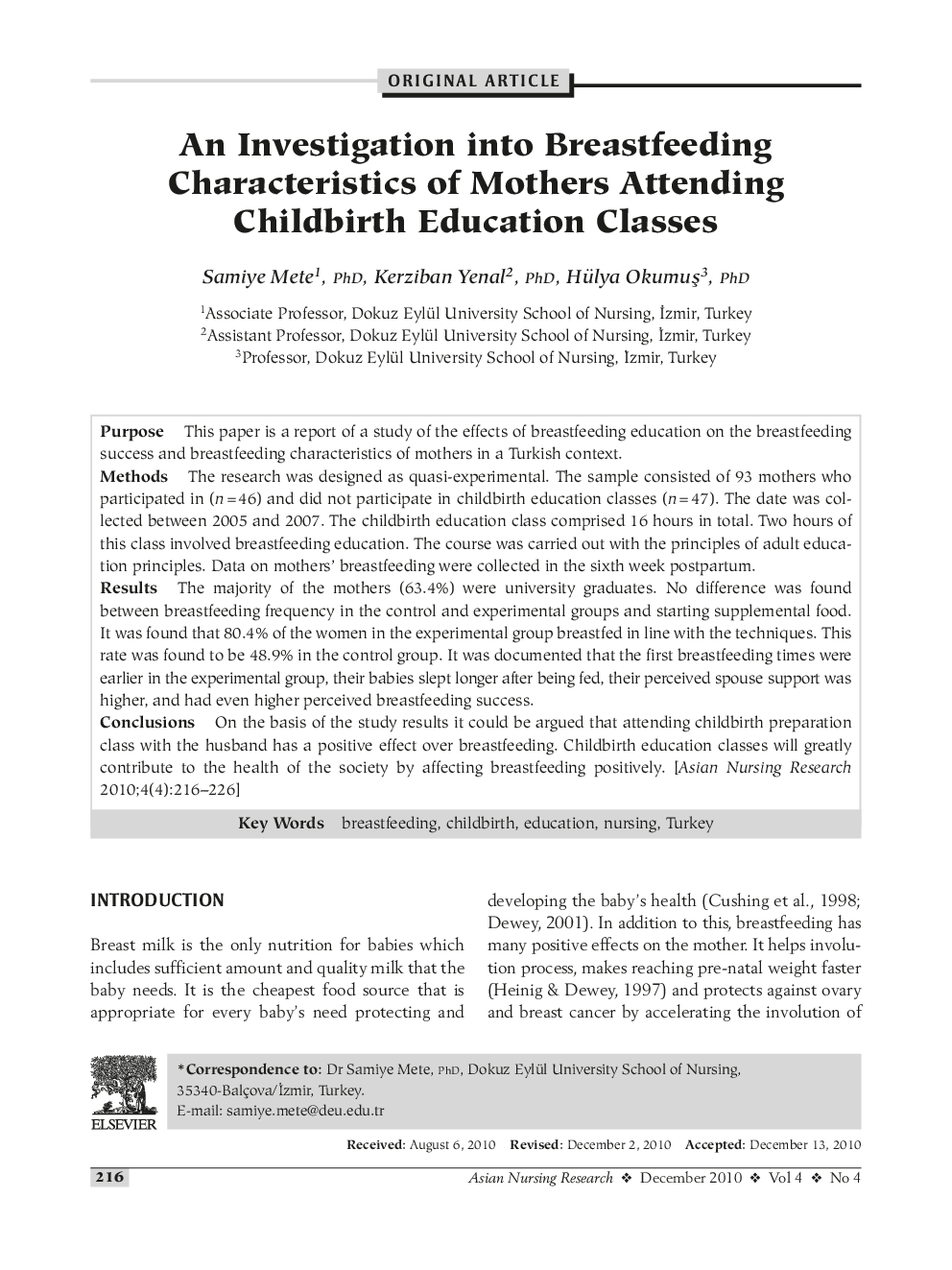| Article ID | Journal | Published Year | Pages | File Type |
|---|---|---|---|---|
| 2645481 | Asian Nursing Research | 2010 | 11 Pages |
PurposeThis paper is a report of a study of the effects of breastfeeding education on the breastfeeding success and breastfeeding characteristics of mothers in a Turkish context.MethodsThe research was designed as quasi-experimental. The sample consisted of 93 mothers who participated in (n = 46) and did not participate in childbirth education classes (n= 47). The date was collected between 2005 and 2007. The childbirth education class comprised 16 hours in total. Two hours of this class involved breastfeeding education. The course was carried out with the principles of adult education principles. Data on mothers' breastfeeding were collected in the sixth week postpartum.ResultsThe majority of the mothers (63.4%) were university graduates. No difference was found between breastfeeding frequency in the control and experimental groups and starting supplemental food. It was found that 80.4% of the women in the experimental group breastfed in line with the techniques. This rate was found to be 48.9% in the control group. It was documented that the first breastfeeding times were earlier in the experimental group, their babies slept longer after being fed, their perceived spouse support was higher, and had even higher perceived breastfeeding success.ConclusionsOn the basis of the study results it could be argued that attending childbirth preparation class with the husband has a positive effect over breastfeeding. Childbirth education classes will greatly contribute to the health of the society by affecting breastfeeding positively.
